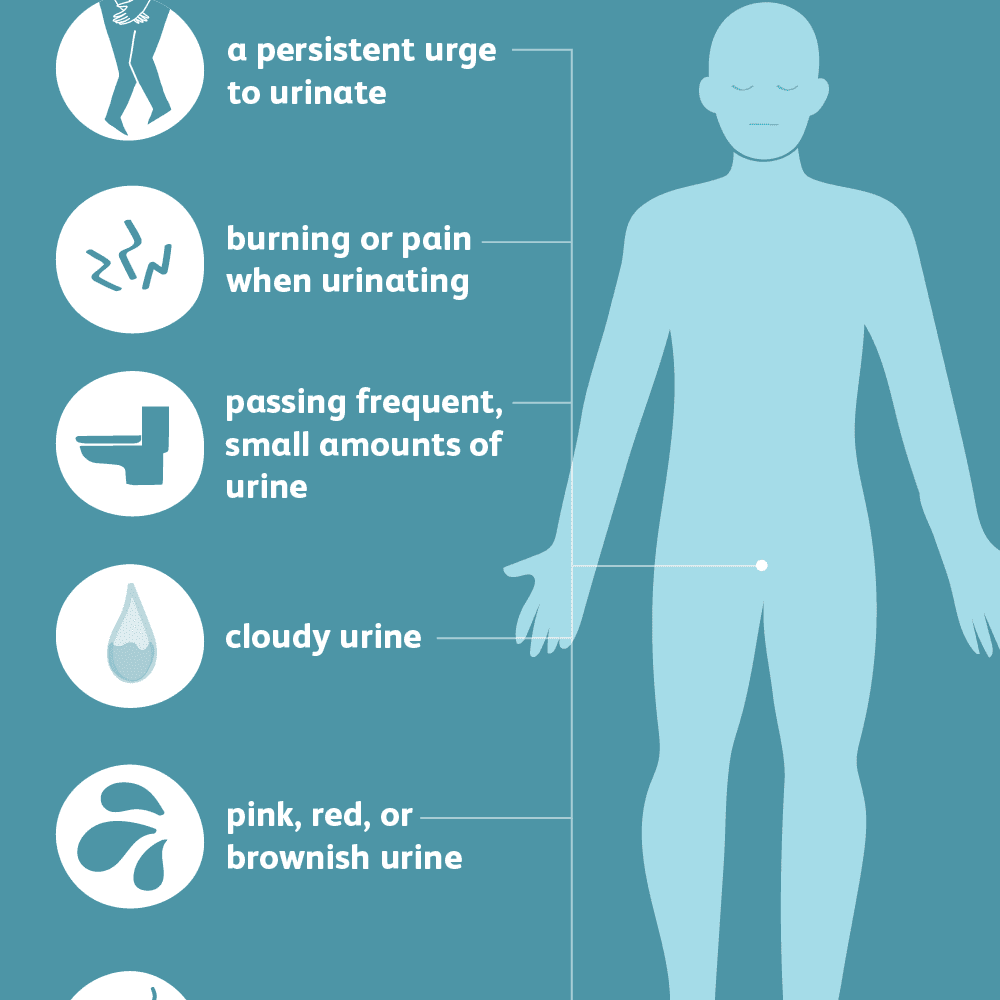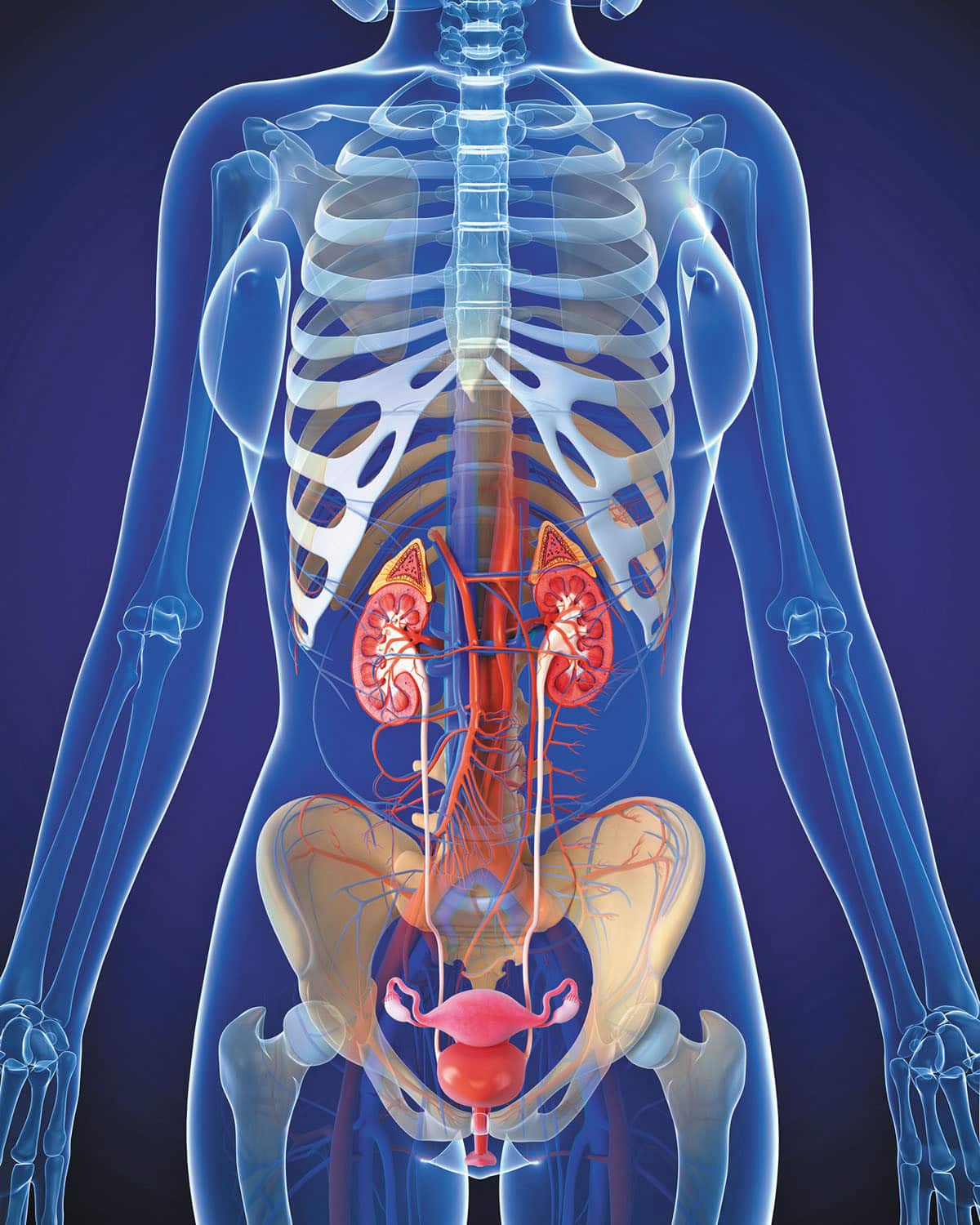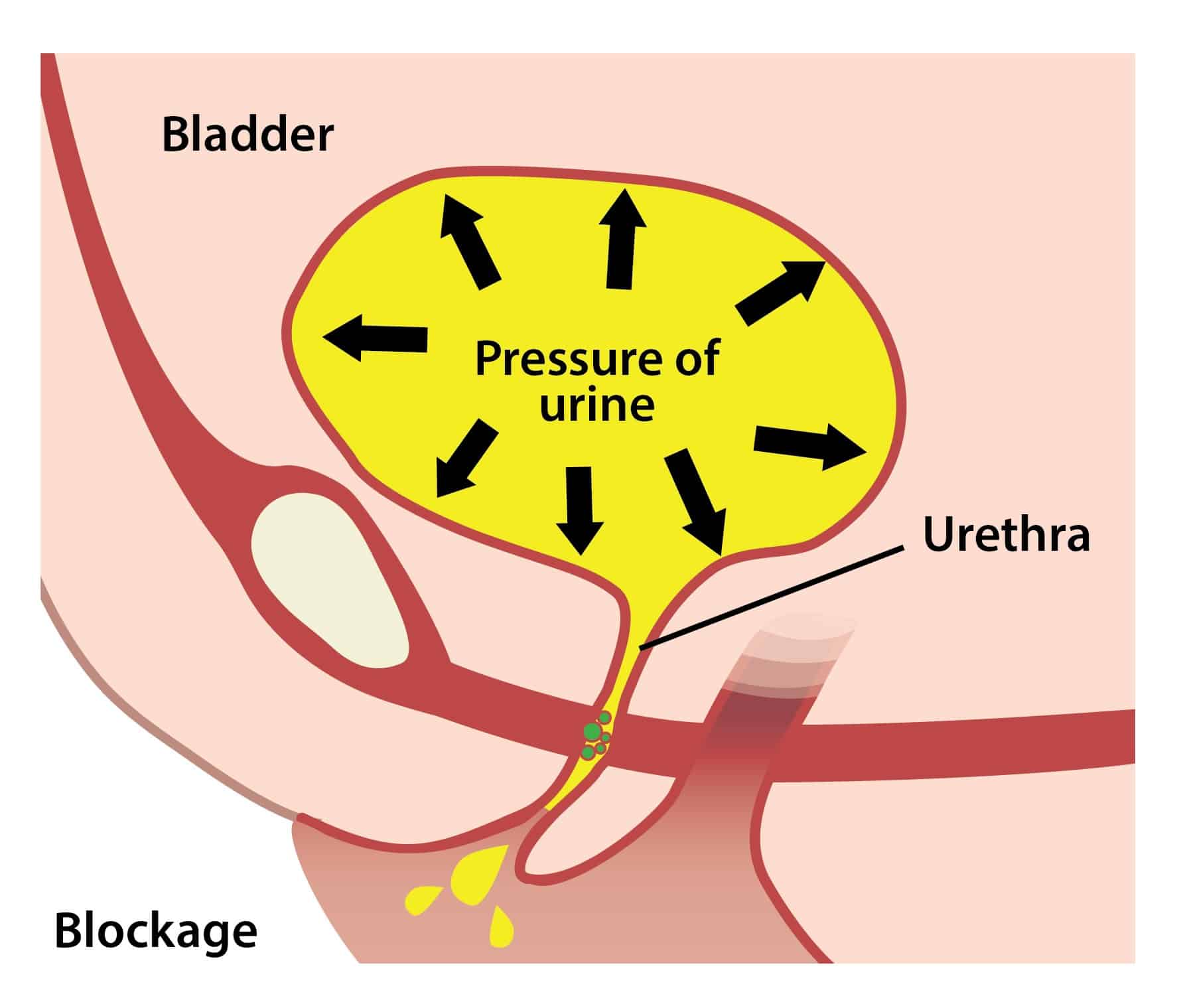Treatments And Home Remedies
Different treatment options can be used to assist in providing a patient relief of urinary urgency. The specific treatment will depend on the cause behind the symptoms a patient experiences. This is why a diagnosis from a doctor is important. The doctor will be able to conduct certain tests. They will then provide treatment that addresses the underlying causes.
These are some of the more common treatments offered to patients with urinary urgency:
- The doctor may advise the patient to make a few lifestyle changes. If the patient drinks a lot of coffee and alcohol, they may be advised to reduce their intake of these beverages. This may help to reduce urine collection in the bladder.
- The patient may be advised to lose weight if they are overweight or obese. The excess weight causes pressure on the bladder. By reaching a healthy weight, the pressure will be relieved.
- Bladder training is sometimes advised. This involves a special strategy that teaches the patient ways to gain better control of their bladder. Timed voiding is one of the most important factors related to bladder training. A diary will be kept by the patient. The dairy will be presented to the doctor with each consultation. This also helps the doctor determine if treatments are effective.
- Physical therapy is another option that may be provided. The patient may also be told to do Kegel exercises.
What Is Urinary Incontinence
Urinary incontinence is the accidental loss of urine. According to the National Association for Continence, over 25 million adult Americans experience temporary or chronic urinary incontinence. UI can occur at any age, but it is more common among women over 50. Urinary incontinence may be a temporary condition that results from an underlying medical condition. It can range from the discomfort of slight losses of urine to severe, frequent wetting.
What Are The Specific Symptoms Of Overactive Bladder
Overactive bladder represents a collection of symptoms that can include:
- Urinary urgency: This is a failure to be able to postpone the need to urinate. When you feel you need to urinate, you have a limited amount of time to get to a bathroom.
- Frequency of urination: People who experience this symptom need to urinate very often. Typically its an increase in the number of times you urinate compared to what you previously experienced.
- Urge incontinence: In this case, there can be a leakage of urine when you get the urge to urinate.
- Nocturia: This symptom is characterized by the need to get up and urinate at least two times each night.
Also Check: Medicine Used For Urinary Tract Infection
What Is Frequent Urination And How Many Times Should You Pee In A Day
Frequent urination means needing to urinate more times than usual in a typical day. Every woman goes on her own schedule, but generally, peeing 6-8 times in 24 hours is considered normal for someone who is healthy, and isnt pregnant. If youre going more often than that, you may be experiencing frequent urination.
Frequent urination can happen on its own and isnt always a sign of a health problem. But if it appears along with other symptoms, like fever or a burning sensation when you pee, your doctor will want to consider possible links to other pelvic health conditions. Either way, understanding why you have to pee so much is the first step toward getting relief. And often, personalized treatment can help stop frequent urination and let you get back to life on your own schedule.
When Should I See A Healthcare Provider

See a healthcare provider if you experience any symptoms of an overactive bladder.
Age-related OAB may develop gradually and slowly worsen over time. If your symptoms develop suddenly and you have heavy leakage, your OAB may be a symptom of another condition, such as an infection or a neurological issue. Its best to have a provider check these symptoms sooner rather than later.
Recommended Reading: Is Tea Bad For Urinary Tract Infection
What Medications Are Used To Treat Overactive Bladder
As youre retraining your bladder, a healthcare provider may prescribe medication. Medications can help restore normal bladder function. Commonly prescribed medications for overactive bladder include:
Anticholinergic medications
Beta-3 adrenergic medication
Beta-3 adrenergic medications cause the detrusor muscles in your bladder to relax so your bladder can store more pee. A healthcare provider may prescribe:
Clinical Evaluation Of Men With Urinary Incontinence
History and physical examination
A detailed history and physical examination are key to the management of male patients with urinary incontinence. Medical history is often sufficient to identify the predominant problem, the type of incontinence and the impact of this condition on the physical and psychological wellbeing of an individual. The presence of other lower urinary tract symptoms, such as voiding difficulties and terminal dribbling, can help the differential diagnosis. The amount of leakage, number of pads used and coping strategies the patient may have developed will all help to determine how bothersome the leakage is for the patient. Additionally, a detailed surgical and drug history should be noted. Patients should also be asked about the presence of any concomitant faecal incontinence.
A focused physical examination is the next step, with examination of the abdomen, pelvis and external genitalia followed by a digital rectal examination and palpation of the bladder after voiding to rule out any residual urine. Demonstration of stress urinary incontinence can also be performed by asking the patient to cough or strain. A brief neurological examination is also necessary to rule out any underlying problems of the nervous system.
Initial assessment
Read Also: Complete Natural Products Urinary Tract Complete
Also Check: Purina One For Urinary Tract Health
How Is Urinary Urgency And Frequency Treated
Treatment will depend on the type and cause of your urination problems. You may need any of the following:
- Medicines may be given to relax your bladder and decrease urination. You may also need antibiotics if your symptoms are caused by a bacterial infection.
- Sacral nerve stimulation sends electrical signals to your sacral nerve through a small device implanted under your skin. Your sacral nerve controls your bladder, sphincter, and pelvic floor muscles.
- Botox injections into your bladder may help relax your bladder muscle to decrease urgency and frequency.
- Surgery may be done if all other treatments cannot help you control your bladder.
What Is Urinary Urgency & Frequency
Urinary urgency is the strong, sudden desire to pass urine without prior warning, or the feeling of being busting for the toilet. Urinary frequency is defined as the need to empty the bladder often, with only short times between toilet visits. Frequency is characterised by more than ten visits to the toilet per day. Urgency and frequency may or may not be accompanied by bladder leakage or incontinence.
Urgency and frequency can cause distress for your child and your family, particularly when day-trips, shopping expeditions and car drives start to revolve around the location of toilets! Although these problems often improve with age, children do not necessarily grow out of it. The underlying bladder, muscle or nerve problem can lead to problems later in life. If your school-aged child has urinary urgency and frequency that is interrupting their quality of life, professional advice is essential.
Also Check: How Can I Stop Urinary Incontinence
Can Nerve Stimulation Help Overactive Bladder
Yes, nerve stimulation can help improve OAB. Your nerves help tell your brain that your bladder is full. By treating your nerves, you can improve your bladder control.
Nerve stimulation is a reversible treatment. Healthcare providers only recommend it if other treatments dont work.
There are several types of nerve stimulation treatments. These include:
Sacral nerve stimulation
Sacral nerve stimulation is a therapy that electrically stimulates the nerves that control your bladder.
A healthcare provider will implant a small device called a neurotransmitter under the skin near your upper buttock area. The neurotransmitter sends mild electrical impulses through a wire near your sacral nerve. Your sacral nerve is a nerve in your lower back. The impulses help you control your bladder.
Sacral nerve stimulation can reduce the number of times you have to use the bathroom or the number of times you accidentally leak pee. Its overall very effective. Its also an outpatient procedure, so you can go home afterward.
Percutaneous tibial nerve stimulation
Percutaneous tibial stimulation sends small nerve impulses to a nerve branch near your ankle. It helps stimulate bladder control.
Percutaneous tibial nerve stimulation is an outpatient procedure. Many people need 12 weekly sessions and then monthly maintenance sessions afterward.
Botulinum toxin injections
Botox® is the most well-known botulinum toxin brand. A healthcare provider injects Botox into your bladder wall using a cystoscope.
What Are The Signs And Symptoms Of Type 2 Diabetes
According to the Urology Care Foundation, women are at greater risk for UI than men because they have a shorter urethra than men. As a result, any weakness or damage to the urethra in a woman is more likely to cause urinary incontinence. This is because there is less muscle keeping the urine in your bladder until you are ready to urinate.
Recommended Reading: Reasons For Urinary Tract Infection In Females
Recommended Reading: Does Urinary Infection Cause Back Pain
When Should I Reach Out To My Doctor About Frequent Urination
Because the conditions behind frequent urination can range wildly from casual to severe, you should speak to your doctor about anything outside of your typical urination patterns. In some cases, frequent urination may be just an annoying symptom that will end when you cut back on the caffeineor have the baby. However, if you are unsure why youre urinating so frequently, it is best to set up an appointment and talk about it. This is a symptom that can often be treated and isnt something that you need to just deal with.
There are a few signs to keep an eye out for and call your doctor immediately if you have them with frequent urination. These include:
- If you have a fever.
- If you are vomiting.
- If you have back pain .
- If you see blood in your urine.
Diagnosis Of Frequent Urination

Your doctor needs to know when the problem started, your lifestyle, your medical history, and how often you need to go to the bathroom. They will also conduct a physical examination to check for swelling and urine analysis to identify any infections.
The doctor will evaluate several factors to determine an accurate diagnosis. These factors include:
If you have started taking new medications Is your urine a different color than usual? Have you seen blood in the urine? Do you regularly drink caffeinated beverages? Are there any other symptoms? Is it painful to urinate?
Depending on these answers, more diagnostic testing can be done, which includes:
Cystometry, which is a test that measures the pressure inside the bladder to see how well it is working.
Cystoscopy, which allows your doctor to look at the inside of the bladder and urethra using a thin, lighted instrument called a cystoscope
Neurological testing to rule out possible nerve disorders
Ultrasonography, which uses sound waves to visualize an internal body structure to help identify abnormalities in the structure
You May Like: Urinary Incontinence After Prostate Surgery
Also Check: Can Urinary Tract Infection Cause Fever
Diagnosis Of Enlarged Prostate Gland And Urinary Problems
If you are troubled by urination problems, see a doctor no matter what your age. If your doctor agrees that your symptoms need further evaluation and treatment, you may need to undergo a few tests.These may include:
- general examination medical history and review of any health conditions including obesity, diabetes, obstructive sleep apnoea, depression and erectile dysfunction. A rectal examination may be done to check the size and shape of your prostate gland
- a urine check to ensure the prostate is not infected
- a flow-rate check to estimate the speed with which you pass urine
- an ultrasound examination to assess if the bladder is emptying completely and to examine your kidneys
- urodynamics a series of tests on the bladder to see how your urinary system is functioning may be recommended in some circumstances.
Other Causes Of Frequent Urination
If you find yourself urinating 20 times a day or more and you haven’t had any diuretics, it might be a sign of a more serious condition, and you should consult a doctor.
ACE inhibitors, antidepressants and sedatives can cause frequent urination, and so can Type 1 diabetes. Your risk of having increased urination is increased with lower urinary tract symptoms, age and a family history of incontinence.
Prostate cancer in men and pelvic or bladder cancer in both sexes can cause frequent urination. On the other hand, something as harmless as pregnancy can cause it. To be safe, see your doctor if you experience unusual symptoms.
Don’t Miss: How To Control Urinary Frequency
Forms Of Urinary Incontinence That Affect Men Only
- Benign prostatic hyperplasia affects about 50 percent of men over the age of 60, and 90 percent over the age of 85 an enlarged prostate can cause sudden and frequent urges to urinate.
- Peyronies disease is the result of injury or damage to penile tissue, causing an abnormal curvature.
- Painful inflammation of the prostate gland
Treatment And Medication Options For Overactive Bladder
Overactive bladder may be treated with lifestyle changes, drugs, office procedures, implantable devices, or surgery.
Guidelines from the American Urologic Association to treat non-neurogenic OAB, updated in 2019, recommend asfirst line treatment behavioral therapies such as
- bladder training
- fluid management -guideline rel=nofollow> 4)
If lifestyle measures arent enough, youll most likely be prescribed a small dose of a drug, which can be increased as needed to control symptoms.
If drugs dont deliver the relief you need, your doctor may give you Botox injections to help relax your bladder muscle.
Both office-based procedures and implantable devices can deliver electrical impulses to the nerves that communicate with your bladder, helping it relax.
In rare cases, your doctor may recommend surgery to increase your bladders capacity or to remove it completely.
Also Check: How Does A Urinary Tract Infection
Natural Treatments For Frequent Urination
1. Pelvic Floor Training
Pelvic floor muscle exercises are usually one of the first lines of treatment for urinary issues like incontinence, overactive bladder and frequent urination. These exercises help to improve the strength, coordination and endurance of the pelvic floor muscles. Pelvic floor training is a type of exercise that involves muscle clenching.
One type of pelvic floor training is kegel exercises, which help to strengthen the muscles that wrap around your urethra. When you clench these muscles by contracting them and then relaxing them, they are becoming stronger and you can better control the act of urinating. For people dealing with frequent urination, kegels can help to support your bladder.
2. Bladder Training
Did you know that you can train your bladder? Some people are teaching their bladders some pretty bad habits and they dont even know it. For instance, some people dealing with frequent urination may be training their bladder to empty more often, before it is actually full. So you are getting the urge to urinate, even though you dont really have to just yet.
Do your best to wait the set amount of time before you urinate again, and if you find that you dont have to urinate when youve hit your interval, do it anyway. If you get the urge to urinate before its time, try some distraction techniques like taking deep breaths, relaxing your body and sitting in a chair and leaning down, which should relieve some pressure.
3. Watch Your Fluid Intake
What Causes Urinary Urgency And Frequency
- A urinary tract injury or infection , or a chronic bladder infection
- Infection in your urethra, or urine leaking from your urethra
- A nerve problem, or radiation treatment for cancer
- A medical condition, such as bladder cancer, diabetes, or a stroke
- In women, pregnancy, menopause, or a vaginal infection
- In men, prostate infections, swelling, or enlargement
Don’t Miss: Can Chemotherapy Cause Urinary Incontinence
What Medications Can I Use For Overactive Bladder
Your doctor may suggest trying behavioral techniques before having you use a medication to treat overactive bladder. However, medications can work very well to return normal function to the bladder. Ask your doctor about the risks and benefits of using the following commonly prescribed medications:
Anticholinergic medications
These medications control muscle spasms in the bladder:
- Oxybutynin , oxybutynin XL , oxybutynin TDDS .
What Questions Should I Ask A Healthcare Provider

- How do you know that I have an overactive bladder?
- Whats the cause of my overactive bladder?
- Whats a normal number of times to pee each day?
- How much should I drink each day?
- What fluids should I drink?
- What fluids should I avoid drinking?
- What foods should I eat?
- What foods should I avoid eating?
- What treatments do you recommend?
- Are there any side effects to your recommended treatment?
- What medications do you recommend?
- Are there any side effects to your recommended medications?
- Are there any other lifestyle changes I can make?
- Can you recommend a support group for people with overactive bladder?
A note from Cleveland Clinic
Overactive bladder is a common condition that causes changes in your bathroom habits, which can be embarrassing. Many people struggle to talk to a healthcare provider about their symptoms. However, providers can help answer any of your questions without judgment. They can determine the cause of your overactive bladder and work with you to develop the best treatment plan. If you have symptoms of overactive bladder, talk to a healthcare provider so you can regain control of your bathroom habits and improve your quality of life.
You May Like: Walgreens Urinary Tract Infection Home Test